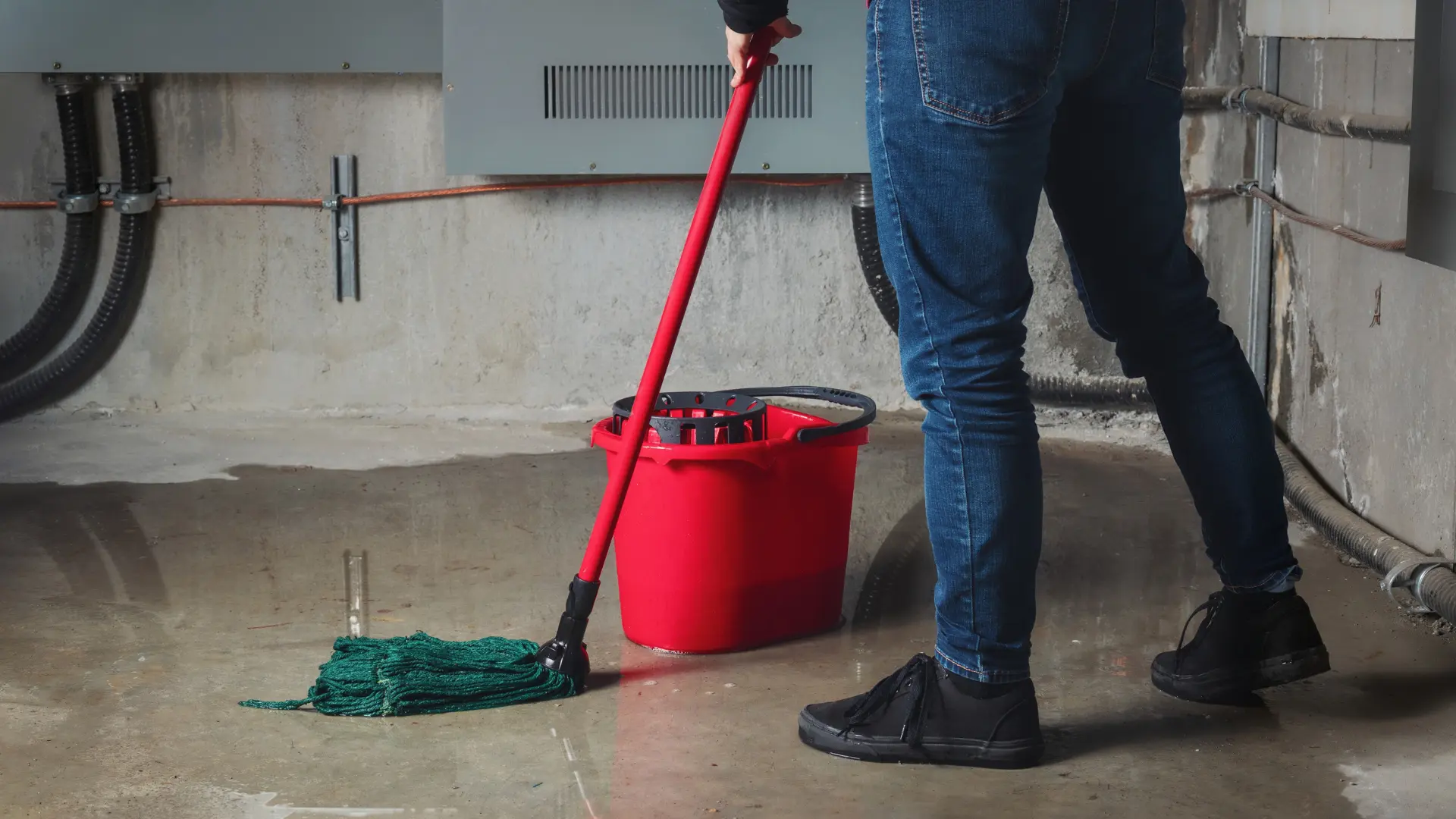Your basement is one of the most important parts of your home’s structure. It supports your foundation, stores valuables, and can even serve as extra living space. But when water starts sneaking in, it can quietly damage your property and your peace of mind.
Many homeowners in Toronto and across the GTA experience basement leaks at some point — often caused by heavy rain, poor drainage, or aging foundations. The good news? Most of these problems can be fixed or prevented with proper basement waterproofing.
At City Wide Group, we’ve helped thousands of homeowners protect their basements and foundations with proven, long-lasting waterproofing solutions. In this guide, we’ll explain the most common warning signs that your home may need basement waterproofing, why acting early matters, and how our experts can help you keep your space dry and safe year-round.
Why Basement Waterproofing Matters
Your basement plays a key role in your home’s overall health. When moisture seeps in — even a little — it can cause more than just cosmetic damage. Over time, water pressure against the foundation can weaken concrete, cause cracks, and lead to mould growth.
A dry basement isn’t just about comfort; it’s about protecting your home’s value, structure, and air quality. Once you understand the early warning signs, you can take action before small problems turn into expensive repairs.
1. A Musty or Damp Smell
A musty smell is usually the first and easiest sign to spot. If you walk into your basement and notice a damp, earthy odour, it means moisture is present — even if you don’t see visible water.
Moisture trapped behind walls, under floors, or inside insulation can cause long-term mould and mildew growth. Over time, this affects indoor air quality and can lead to allergies or breathing issues.
A professional basement waterproofing company can pinpoint the source of moisture — whether it’s foundation cracks, poor drainage, or humidity — and provide a permanent fix.
2. Visible Cracks in Walls or Floors
Cracks in your foundation are a natural part of settling, but not all cracks are harmless. When water seeps into those small openings, it can expand them over time — especially during freeze-thaw cycles common in Canadian winters.
If you notice:
- Horizontal cracks along your foundation wall
- Vertical cracks growing wider after rainfall
- Water stains around cracks
It’s a clear sign that your basement may need waterproofing. Addressing cracks early can prevent structural damage and protect your foundation for years to come.
Our basement waterproofing company uses modern waterproofing materials designed to stop water penetration and seal cracks permanently.
3. Water Stains or Paint Bubbling
If you see yellow or brown stains on basement walls, bubbling paint, or peeling drywall, it’s a sign that water is finding its way through. These stains often start small but grow over time as water continues to seep in.
Another common indicator is a white, chalky powder on concrete — known as efflorescence. It’s caused by minerals left behind as water evaporates from your walls.
While cleaning can remove the surface marks, it doesn’t stop the problem. Only proper basement waterproofing can prevent water from re-entering and causing more damage.
4. Mould or Mildew Growth
Mould loves dark, damp spaces — and basements are the perfect environment. You might see black, green, or white patches on walls, ceilings, or around window frames.
Besides looking unpleasant, mould can be harmful to your health. It can trigger allergies, headaches, or respiratory issues, especially for children or seniors.
If you notice mould in your basement, don’t just clean the surface. It’s crucial to fix the source of moisture. Professional basement waterproofing seals leaks and helps maintain a dry, healthy indoor environment.
5. Pooling Water or Damp Floors
After a rainstorm, water should drain away from your home — not into it. If you notice water pooling near walls or damp spots on the floor, it’s a sign your drainage system isn’t working properly.
Common causes include clogged weeping tiles, improper grading around your house, or cracks in the foundation.
The solution may involve interior or exterior waterproofing, depending on where the water is entering. At City Wide Group, we inspect your home thoroughly to find the best long-term fix — whether it’s adding a sump pump, installing a drainage system, or sealing your foundation walls from the outside.
6. Peeling Paint, Rust, or Damaged Finishes
Basements often double as living areas, storage rooms, or laundry spaces. So, when you start seeing peeling paint, warped trim, or rust forming on metal furniture and pipes, it’s a warning that humidity or leaks are present.
Moisture trapped behind finished walls can silently cause major damage to your drywall, flooring, and electrical wiring. That’s why basement waterproofing is so important — it keeps both visible and hidden areas safe from long-term moisture damage.
7. White Powder or Crust on Walls (Efflorescence)
That white, powdery substance on your basement wall isn’t dust — it’s called efflorescence. It’s left behind when water moves through concrete or brick and evaporates, leaving mineral deposits on the surface.
While not dangerous on its own, efflorescence is a clear sign that water is passing through your foundation walls. Ignoring it could mean ongoing leaks and eventual cracking. Waterproofing the walls stops the moisture before it has a chance to reach your basement interior.
8. Mysterious Cold Spots or Humidity Changes
If your basement feels colder or more humid than the rest of your home, even without visible leaks, water could still be entering through the foundation or floor slab.
Moisture makes the air feel damp and cool, and it often leads to condensation on pipes or windows. Installing a basement waterproofing system and a proper dehumidifier helps maintain balanced humidity and prevents future damage.
9. Seasonal Leaks After Heavy Rain or Snow Melt
Canadian weather can be unpredictable — from spring thaw to autumn storms. Many homeowners notice basement leaks only during specific seasons. This usually happens when groundwater pressure increases around the foundation during wet months.
If your basement leaks only during heavy rain or snow melt, that’s still a serious sign. Temporary fixes like patching or painting won’t last. Professional basement waterproofing ensures your home stays dry through every season, no matter the weather.
10. Pest or Insect Problems
Moist basements can attract unwanted visitors — such as silverfish, centipedes, and other insects that thrive in damp environments. If you’ve noticed more bugs than usual, it might be because of hidden moisture or small cracks letting them in.
Waterproofing your basement doesn’t just stop leaks — it helps keep pests out too, by sealing every possible entry point around your foundation.
How Basement Waterproofing Fixes the Problem
When you call our basement waterproofing team in Toronto, our process starts with a thorough inspection of your basement and foundation. We identify the source of the problem, explain what’s happening, and recommend the best solution for your home.
Depending on your needs, this may include:
- Exterior waterproofing – digging around the foundation, applying a waterproof membrane, and installing new drainage to keep water out completely.
- Interior waterproofing – installing interior drains, sump pumps, or vapour barriers to manage moisture from inside.
- Foundation repair – sealing cracks and strengthening your walls.
- Sump pump and drainage upgrades – redirecting water away from your home safely.
Our team uses high-quality materials and proven techniques to ensure long-term protection — not just a quick fix.
The Cost of Ignoring the Signs
Ignoring moisture problems can be far more expensive than fixing them early. Water damage can weaken your foundation, ruin stored belongings, and even lower your property value.
Over time, you may also face:
- Mould removal costs
- Damaged flooring or drywall
- Electrical hazards
- Pest infestations
Investing in basement waterproofing now protects your home, your family’s health, and your peace of mind.
How to Prevent Future Basement Moisture
Even after waterproofing, a few simple maintenance habits can make a big difference:
- Keep gutters and downspouts clear and extended at least two metres away from your foundation.
- Check the slope of your yard — it should direct water away from your home.
- Test your sump pump twice a year to ensure it’s working.
- Use a dehumidifier in humid months to prevent condensation.
- Inspect walls and floors every season for new cracks or damp spots.
These small steps help your basement waterproofing system last longer and perform better.
Why Homeowners Across the GTA Choose City Wide Group
For decades, City Wide Group has been one of Toronto’s most trusted names in basement waterproofing. We take pride in delivering honest advice, expert workmanship, and results that last.
Here’s why homeowners continue to choose us:
- Locally owned and operated
- Experienced, certified waterproofing specialists
- Clean and respectful work
- Transparent pricing with no surprises
- Long-term warranties for peace of mind
Whether you’re dealing with a leaky wall, damp floor, or a full basement renovation, our team can help you find the right waterproofing solution.
Final Thoughts
A wet basement doesn’t have to be part of homeownership. With professional basement waterproofing, you can protect your property, improve your air quality, and enjoy a dry, comfortable space — even during Toronto’s heaviest rainstorms.
If you’ve noticed any of the signs we’ve covered — from musty smells to visible cracks — it’s best not to wait. Reach out to our friendly team at City Wide Group today. We’ll assess your basement, explain your options clearly, and help you choose the best way to keep your home dry for years to come.










